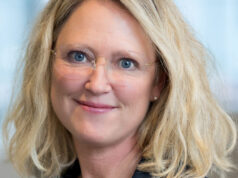BioStock Studio: Xintela expands to venous leg ulcers
Xintela has broadened the clinical development of its stem cell product XSTEM to include venous leg ulcers, the most common form of difficult-to-heal wounds in humans. Together with the Burn Centre at Linköping University Hospital, the company has shown that XSTEM provides good wound healing in a preclinical model. The next step for the company will be to apply for a clinical study in patients with venous leg ulcers, a study that Professor Folke Sjöberg from the Burn Centre tells us more about below.
Xintela is using its patented marker technology XINMARK to develop stem cell therapies and targeted cancer therapies. For the stem cell-based treatments, the company has developed the stem cell product platform XSTEM consisting of integrin a10b1-selected allogeneic mesenchymal stem cells.
The first XSTEM project is focused on the joint disease osteoarthritis, for which a clinical trial is now being prepared in Australia. Recently, it was announced that the clinical development is now being expanded to include venous leg ulcers, the most common type of difficult-to-heal (chronic) wounds.
XSTEM in the fight against difficult-to-heal and troublesome leg ulcers
When the function of the veins weakens, the body’s ability to pump the blood from the legs up to the heart deteriorates, causing the legs to swell. Prolonged swelling can cause damage to the skin which can lead to venous leg ulcers. These can take a very long time to heal despite sustained treatment.
Difficult-to-heal venous leg ulcers are defined as wounds below the knees that do not heal within six weeks. Figures from the US, Japan and the five largest markets in Europe (UK, France, Germany, Spain and Italy) show that as many as 2 million individuals suffer from difficult-to-heal leg ulcers in these countries alone.

Previous research has been done one on the use of stem cells for the treatment of leg ulcers, something that Xintela now chooses to investigate further. In order to conduct a clinical study in patients with venous leg ulcers, the company has enlisted the help of a team of experts in wound healing, namely Professor Folke Sjöberg and his colleagues at the Burn Injury Centre, Linköping University Hospital.
Positive preclinical results
Together with Professor Sjöberg’s research team, Xintela has presented preclinical results that support the use of XSTEM for the treatment of difficult-to-heal wounds.
With these positive results (more details in the video below), Xintela has now chosen to continue on the wound healing track. A first scientific advisory meeting with the Medical Products Agency has been held and work is now being done to produce documentation for a clinical trial application (CTA) for a first clinical study in venous leg ulcers.
Growing global market
The new development track also broadens the target market for XSTEM. In 2018, the global market for the treatment of venous leg ulcers was estimated to be worth 2.95 billion USD, a figure that is expected to increase to 4.84 billion USD in 2026 with a CAGR of 6.4 per cent. The growth is due to the fact that the prevalence of venous leg ulcers is expected to increase in line with the ageing population, but also because of the increasing prevalence of, for example, diabetes, varicose veins and obesity.
Xintela’s CEO Evy Lundgren-Åkerlund also believes that the path to the wound care market is shorter compared to other indications:
»Venous leg ulcers represent a large and attractive market where the medical need is substantial. In addition, time-to-market in this indication is perceived to be fast compared to many other indications«
Interview with Professor Folke Sjöberg
BioStock had the opportunity to speak with Professor Folke Sjöberg about the preclinical results with XSTEM in venous leg ulcers and the plans for the continued clinical development work in this indication. Watch the video interview (in Swedish) below.

The content of BioStock’s news and analyses is independent but the work of BioStock is to a certain degree financed by life science companies. The above article concerns a company from which BioStock has received financing.


